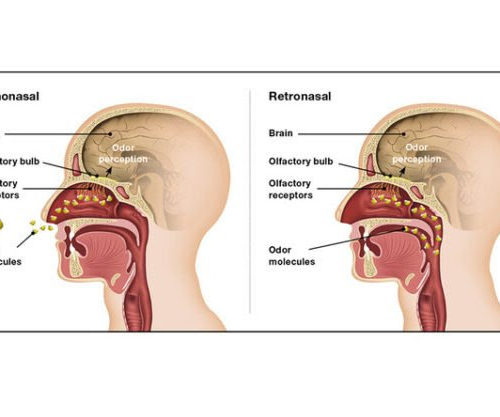Nearly nine in 10 patients reporting a COVID-19-related smell or taste dysfunction completely recovered within two years, although recovery took more than six months for 10.9 percent of patients, according to a research letter published online Aug. 4 in JAMA Otolaryngology-Head & Neck Surgery. Paolo Boscolo-Rizzo, M.D., from University of Padova in Italy, and colleagues estimated...
Tag: <span>taste</span>
What causes a loss of taste?
A lost sense of taste may refer to a partial or total loss of taste. Many possible causes may lead to a loss of taste, including new medications, dental problems, cold or flu, and COVID-19. Taste, also known as gustation, is an important sensation that allows people to identify nutritious food items and enjoy flavor....
When the senses get confused
The SYNGAP1 gene, recently recognized for its role in intellectual disability and epilepsy, may also affect the sensory system of patients with a genetic mutation linked to this gene. That’s the surprising finding of a new study led by scientists at CHU Sainte-Justine and Université de Montréal published in Brain. Image credit: Jonson Goh via pixabay.com, CC0...
Taste and its two ways to the brain
There are a few ways we perceive food, and not all are particularly well-understood. We know that much of it happens in the olfactory bulb, a small lump of tissue between the eyes and behind the nose, but how the stimuli arrive at this part of the brain is still being worked out. How these...
Taste-related protein provides target for drugs to treat neurological disorders
VAN ANDEL RESEARCH INSTITUTE GRAND RAPIDS, Mich. (Dec. 2, 2019) — Understanding how the brain processes sweet, bitter and umami tastes may one day help researchers design more effective drugs for neurological disorders. Van Andel Institute scientists have for the first time revealed the near atomic-level structure of a calcium homeostasis modulator (CALHM), a type...




